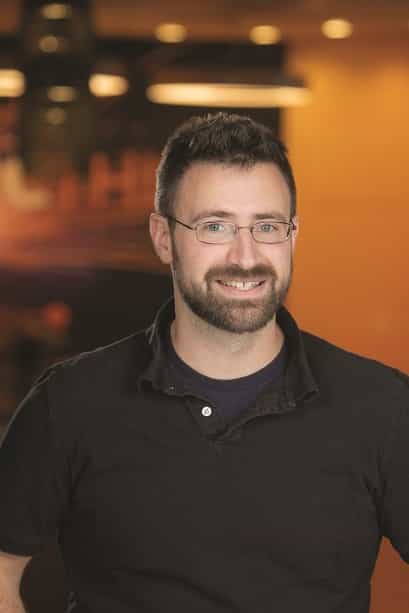Funding Summary
Dr. Puleo and his team are investigating the use of peripheral ultrasound to modulate targets in the brain and impact energy balance and weight. They have strong preliminary data in several mouse/rat models of obesity and have performed early-stage clinical trials in healthy obese people. Here they will investigate mouse models of PWS to as a first step in determining the relevance of this therapeutic approach to PWS.
Dr. Theresa Strong, Director of Research Programs, shares details on this project in this short video clip.
Lay Abstract
This project will determine if non-invasive ultrasound stimulation on peripheral/metabolic nerve pathways can drive therapeutic changes in neurochemistry and nerve activity within hypothalamic nuclei controlling hunger and metabolism. The work will be performed in models of Prader Willi Syndrome (PWS) to enable clinical translation of a currently available ultrasound system.
Currently, there is no cure or completely effective therapy for Prader-Willi Syndrome (PWS). Growth hormone therapy (GHT) remains the only FDA-approved treatment; however, while GHT improves height/stature, body composition, and mental/motor development, it does not improve obsessive and hyperphagic behaviors.
We have shown that our ultrasound stimulation technology can precisely modulate hypothalamic neurons controlling hunger and satiety (i.e., AGRP/NPY- and POMC-expressing neurons), potentially enabling a new way to therapeutically modulate food seeking behaviors and metabolism in diseases such as PWS. We have previously tested our technology on multiple non-PWS models of obesity with success, and show preliminary data that sensory stimulation therapeutically modulates neural circuits known to be affected by PWS. In this proposal, we will test this new form of non-invasive ultrasound therapy in two PWS specific animal models, and if successful our team maintains the ultrasound equipment and human feasibility/safety data with which to move this technology to the next step, that is phase I human trial testing.
Research Outcomes: Public Summary
Our team applied our recently developed method of targeted ultrasound neuromodulation to stimulate two specific sensory nerve pathways emanating from the hepatoportal and superior mesenteric plexuses, sites which have previously been shown to modulate specific neuropeptides within the hypothalamus. We further test stimulation of these gut-brain sensory sites in multiple disease models, in which these hypothalamic neuropeptides have been implicated in the development or pathogenesis of anxiety, behavior, or cognitive symptoms of the disease. These models include the Zucker Diabetic Fatty (ZDF) model of Type II diabetes and LPS-induced endotoxemia/hyperglycemia (with associated cognitive impairment), the BTBR model of autism spectrum disorder (ASD; with anxiety-like behaviors), and both the Snord116 and Magel2 models of Prader-Willi Syndrome (PWS; with associated metabolic, behavioral, cognitive, and anxiety-like phenotypes). We tested for ultrasound treatment-induced improvements in test outcomes, including open-field and T-maze assessments, social behavior observations, marble burying behaviors, and fasting-induced feeding. Furthermore, we tested for ultrasound stimulation site specific, and disease model specific, improvements in several of these behavioral outcomes. These pilot studies justify further investigation with these (and other) models into the temporal and systemic effects of stimulating ascending sensory nerve pathways within the background of specific genetic and environmentally induced deficits in hypothalamic neural function and signaling. Finally, we discuss the unique non-invasive properties of the extracorporeal ultrasound stimulus, its current translational clinical status, and potential future opportunities.
Funded Year:
2022
Awarded to:
Christopher Puleo, Ph.D.
Amount:
$108,000
Institution:
General Electric Company, GE Research
Researcher:

Christopher Puleo, PhD




